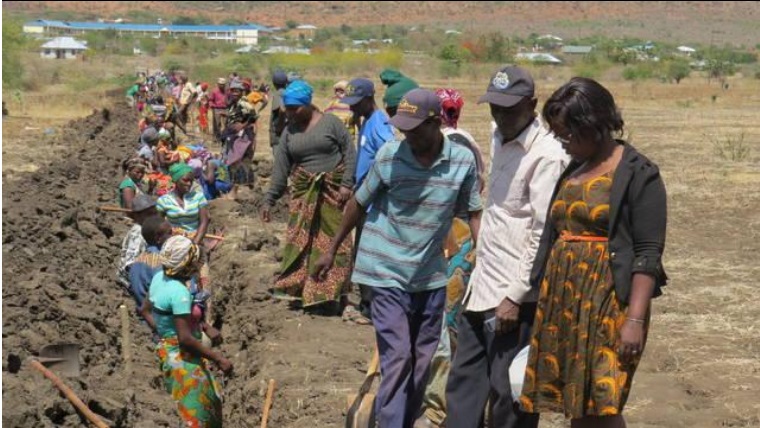Ames resident and former Iowa State sociology professor Gerald Klonglan knew that if he and the Ames Rotary Foundation (Iowa, US — District 6000) wanted to make a difference in the world, they needed to do more than simply give and leave.

This is why for over the past decade they have been spearheading multiple projects — with Rotary clubs across the country — to build, install, and educate about water systems around the African country of Tanzania.
“What we have been doing is all about development rather than charity,” Klonglan said.
According to Klonglan — who serves as chair of the Rotary Global Grant Team — Rotary has six areas of focus: peace and conflict, disease prevention and treatment, water and sanitation, maternal and childcare health, basic education and literacy, and economic and community development.
For Klonglan, clean water for people — that does not require a four-mile walk — lays the foundation for everything else.
“Water and sanitation are important because in the grand scheme of things, you have to have water first,” Klonglan said.
“I’ve been over to Tanzania (multiple times); the drought is there; the schools are all closed; the kids are dying.
“I mean you can’t really describe what’s going on, so if you have water, you can have schools, health and other stuff.”
So far, Klonglan said that the Rotary Foundation of Ames — as well as groups from other cities across Iowa, as well as Hudson, Wisconsin, and South Pasadena, California — have partnered with the Rotary Club of Same (pronounced Sah-may) in Tanzania, to install two water systems in the villages of Kigogo (2014-2015) and Massandare (2016-2017), and are currently working to install a third water system in the village of Mhezi (2017-2018)
“In a village like Kigogo, the first town we went to, they had never had a water system. These women had always walked four hours to get water,” Klonglan said.
“The big impact has been that the girls don’t have to carry water so they’re in school now for the first time ever, and the boys don’t have to herd the livestock all over Tanzania.”
Klonglan said that today each of the projects cost around $250,000, whereas just five years ago, the maximum allotted for projects was just $25,000.
“At $25,000 you might be able to do one thing for a village; you couldn’t do a village water system,” Klonglan said.
Each one of the projects now includes a deep well, electrical service, storage tank, and distribution points, as well as a watering hole for livestock.
In the case of the Mhezi project, the Rotary Foundation is looking to tap into a mountainous spring rather than dig a well.
Klonglan said it is not enough to simply build the systems and leave, but to also ensure that villages have water committees in place that are trained in how to disperse the water and run the system effectively in the future.
“We have major training programmes — and this goes over a five-year period — to train local community leaders how to manage a major village water project,” Klonglan said.
“Unfortunately for the last 50 years, most groups from the US just go into an area or village, work with them, build a well, and they leave, and it never meets the national standards.”
Iowa State University (ISU) Grain Quality Laboratory Manager Glen Rippke who had worked with Klonglan and the Rotary Club of Same said that he was impressed at the water system projects in these villages because he has seen and heard stories of countless unused projects in Tanzania and Africa as a whole.
“There are a lot of projects that were started, maybe worked on for awhile, and then abandoned because nobody knows what to do with it after the people who started it leave,” Rippke said.
“You kind of go into a project like this with Rotary saying, ‘How do we make sure that doesn’t happen?’”
As someone who has made three trips to Tanzania (2007, 2011, and 2012), Rippke said that the increased funding for these projects have contributed to the ensuring the projects are more comprehensive.
Source: Ames Tribune





